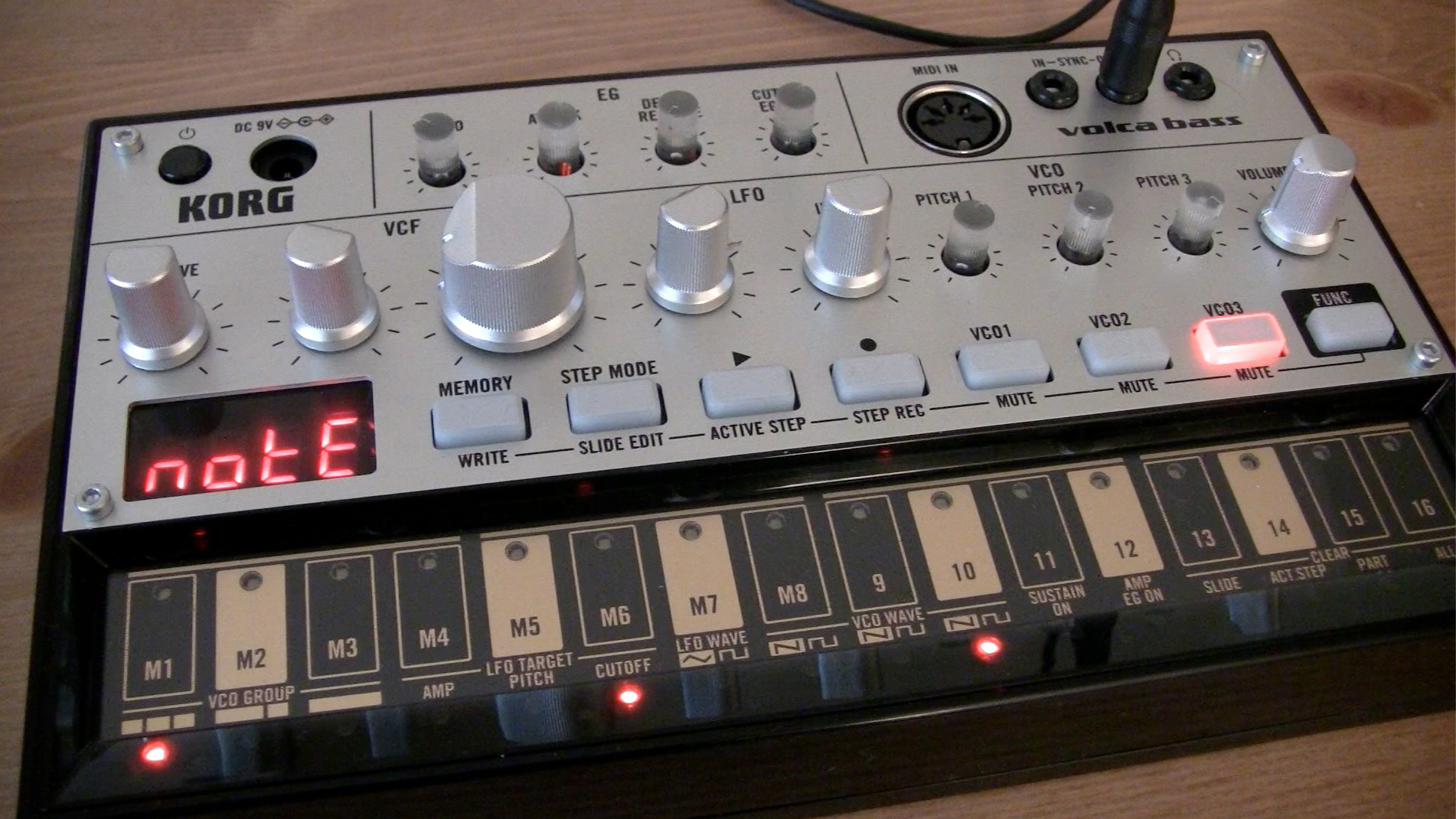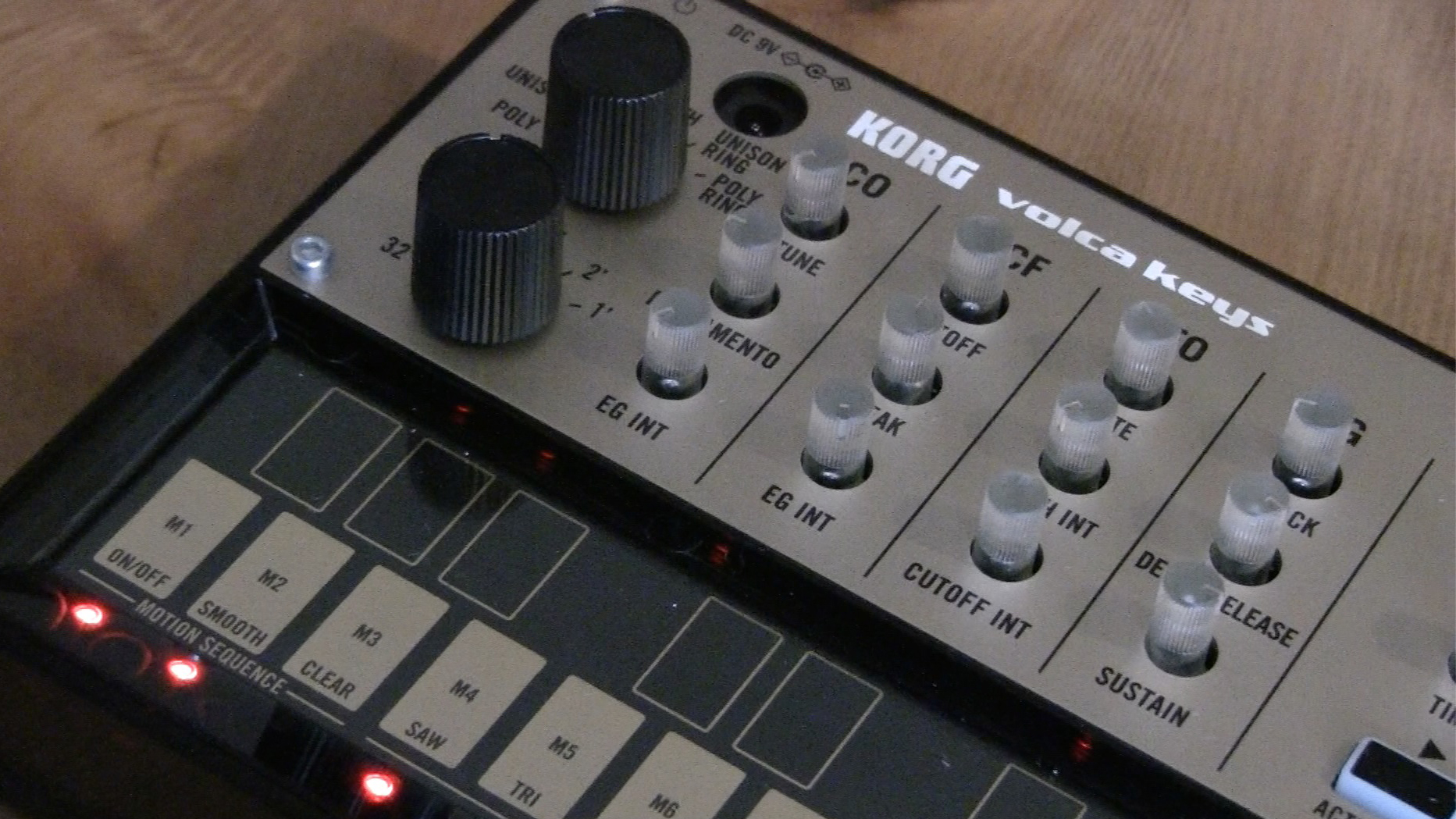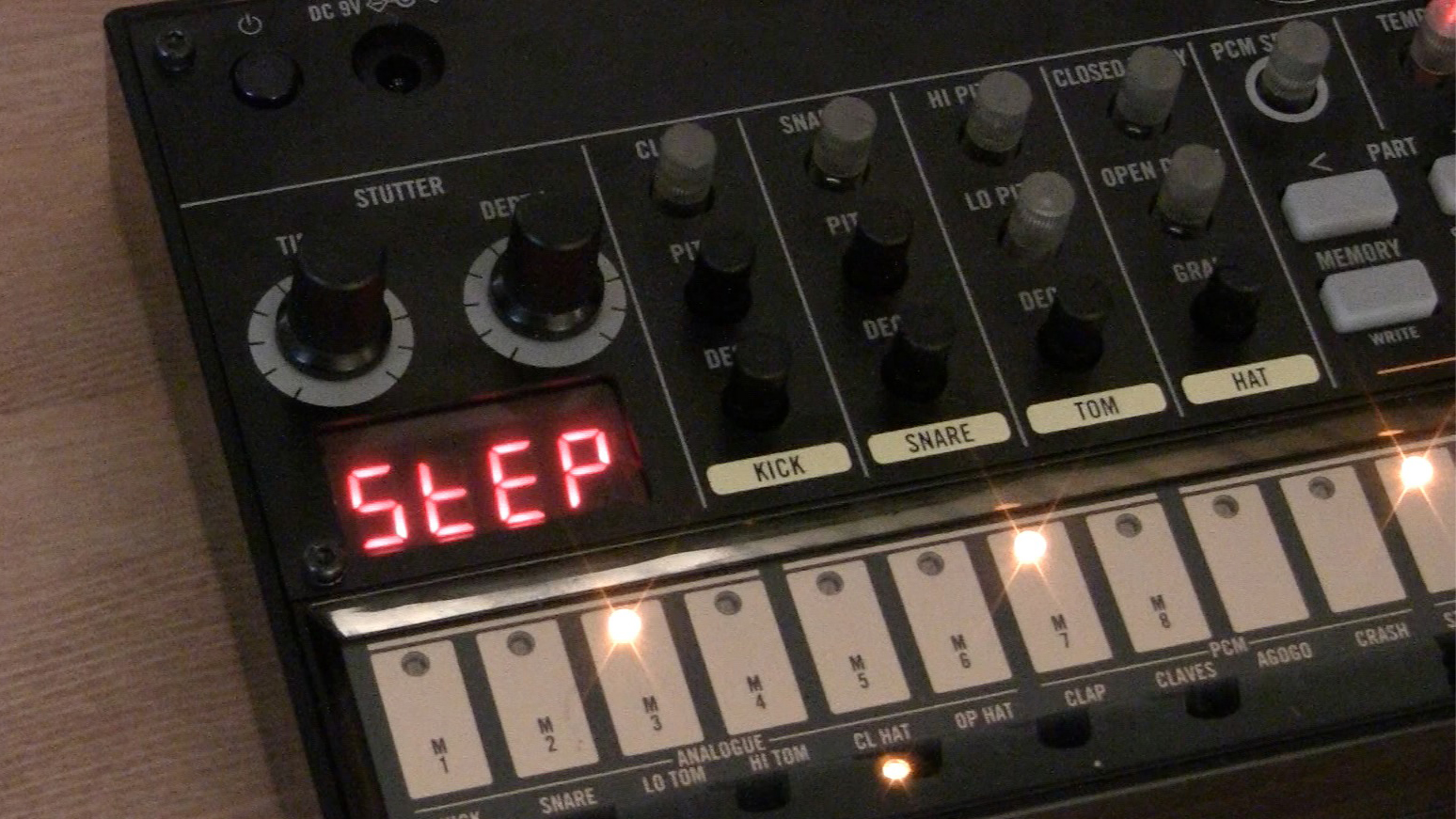When they were unveiled at Musikmesse back in April, Korg's three compact Volca grooveboxes caused a huge flurry of excitement.
Korg has had major success over the past few years with a string of excellent products that pack genuine analogue sounds into compact and affordable packages. We loved the company's Monotron range, which tucked brilliantly noisy analogue oscillators into pocket-sized boxes. Similarly, we got all hot under the collar for the Monotribe - the range's beefed-up sibling that threw a basic drum section and sequencer into the mix.
As such, it was always going to be easy for us to see heaps of potential in the Volca range. Broadly speaking, all three instruments take the best features of the Monotrons - i.e. real analogue sounds, portability and affordability - and build-on them with more advanced sequencing and sound generation features, whilst chucking in plenty of nods to a variety of classic, much sought-after hardware instruments along the way.

The range comprises three units: Volca Keys is a simple but deceptively capable three-note polyphonic analogue synth with loop sequencer; Volca Bass is a 3-oscillator analogue bass synth with an Electribe-inspired 16-step sequencer; and Volca Beats features analogue drum sounds inspired by classic rhythm machines and a 16-step sequencer.
All three finally landed in our office last week, and we've spent the past few days getting to know each. Check out the video above in which we run through the basic features of each instruments and see how they sound (we'll go into them each in more depth in a full review in the coming weeks.)
...On first sight
To cut to the chase, we're a little bit in love with the Volcas. They deliver on the promise of capturing the feel and sound of classic analogue hardware at the sort of price you'd expect to pay for a plug-in (around £120/$150).
Sure, compared to most other hardware or software in 2013, they're fairly basic in terms of their overall controls and flexibility - but to complain about that would be to miss the point. All three units are brilliantly hands-on; for the most part each unit has a single control per function, making every feature very accessible, and making each instrument endlessly fun to toy with.
Get the MusicRadar Newsletter
Want all the hottest music and gear news, reviews, deals, features and more, direct to your inbox? Sign up here.

Naturally, there seems to have been some concessions made in order to keep the Volcas at such an affordable price point. For instance, whilst all three feature a connection for a 9V power supply, the adapters themselves have to be purchased separately (although the Volcas do run off AA batteries, and ship with a full set). Similarly, there's a notable lack of audio outputs; all three instruments are limited to a single 3.5mm headphone jack and a built in speaker that, whilst being a nice touch, doesn't really get across the full sonic character of the instruments.
Still, none of these things really detract from the usability of the Volcas. Crucially, on initial inspection it doesn't feel like concessions have been made where it matters. Despite their plastic casing, the Volcas feel robust, well made and of a high quality, whilst still being nicely lightweight and portable.
The MIDI In feature is likely to really up the value of the Volcas for most users too. While output connections might be limited, between the MIDI input and the jack output all three instruments are capable of slotting nicely into most live or studio setups. The Volca Keys, in particular, comes to life once connected up to an external controller or DAW and allowed to break free of the constraints of its (still very useable) step sequencer.
Most importantly the sounds produced by all three instruments are totally on-point. For example, for any producer inspired by vintage house, techno or hip-hop, the Volca Beats is a fantastic, hands-on source of very useable, genuinely analogue drum sounds. It offers tweakable, booming 808-style kicks, crisp metallic hats and vintage snares and claps - and the stutter function is a great source of rhythmic creativity.

Similarly, the Volca Bass has a very distinct sonic character to it. It's a great source of thick, squelching square wave bass lines and its filter sounds fantastic. For those in the market for authentic sounding, weighty acid house bass licks it's a must-try. The Volca Keys also has an instant retro appeal to it; particularly when hooked up to a MIDI input, it offers classic, warm analogue synth tones on tap.
At this stage, we probably wouldn't be able to pick a front-runner from the three instruments. If you're looking to pick-up just one, then which to choose is likely to come down to personal stylistic preferences - but we'd suggest trying them all.
In short, straight out the box all three of the Volca range offer very useable analogue sounds packed into hands-on, immensely fun packages. Best of all, they come at a price that means most of us can afford them without the need to mortgage something, and without facing the danger of suffering buyer's remorse for years to come. In our books, that's a very good way to make a first impression.
I'm the Managing Editor of Music Technology at MusicRadar and former Editor-in-Chief of Future Music, Computer Music and Electronic Musician. I've been messing around with music tech in various forms for over two decades. I've also spent the last 10 years forgetting how to play guitar. Find me in the chillout room at raves complaining that it's past my bedtime.